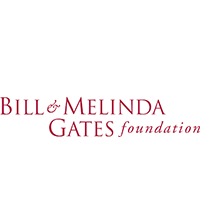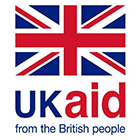To learn more about Digital Green’s AI-powered platform and how it impacts small-scale farmers in India, Ethiopia, Kenya, Nigeria and Brazil, we encourage you to sign up for our newsletter.
Gender Integration in Digital Green’s Work

Agriculture is a family business in Ethiopia, as it is in most countries. Women farmers conduct up to 75% of farm work, accounting for 70% of family food production in Ethiopia. However, women produce up to 35% less than male farmers because they have less access to extension services and inputs such as seeds and fertilizer.[1] This is because agricultural extension services have traditionally been geared toward males and development groups (25-35 farmers organized by the government in their neighborhoods for extension and agricultural development services) are made up of “heads of family,” who are predominantly men. In order to address this, the Ministry of Agriculture of Ethiopia, in collaboration with other non-governmental organizations, is aiming to close the gender gap in agricultural extension services. As part of this endeavor, Digital Green is developing women-only development groups to boost women’s access to agricultural extension services. Furthermore, Digital Green’s video extension approach aims to close the gender gap in farm labor and decision-making by better understanding gender roles in farm labor and decision-making and ensuring that the structure, design, and delivery of video extension services meet the needs of both men and women.
To better integrate the gender dynamics in the project districts and better incorporate them in the video extension approach, Digital Green is collaborating with Tanager[2] through the IGNITE[3] project, a collaboration of Tanager, Laterite and 60 Decibels. IGNITE supports Digital Green’s effort in increasing women’s access to agriculture extension services and gender integration across project activities.
A qualitative research conducted by Laterite as part of research initiatives of IGNITE titled “Exploring Intra-Household Decision-Making and Best Practice Adoption Outcomes of Women-Targeted Digital Extension”[4] shows that women and men have distinct gender roles in wheat farming. Traditionally, men lead on several farming activities like land preparation and sowing, but women and children provide essential support for these activities, while women also lead on others. Men tend to dominate land preparation, sowing, purchasing inputs such as fertilizer or herbicide, and selling the crop. Men are also heavily involved in harvesting and threshing (with support from women and children) and contribute to weeding. Men are rarely involved in support activities like fetching water or preparing food.
Women play a supporting role in almost all farming activities and take the lead in some. Crucial supporting roles, like fetching water for chemicals and fertilizer, monitoring leaves for rust, clearing land of debris, availing fertilizer, and preparing food for all laborers are led by women. Women also take lead on post-harvest storage of wheat. Together with men and children, women harvest and weed as well, and prepare the threshing floor.
Figure 1: division of farm labor[5]

Despite their distinct farm labor role, nearly all participants agree that land belongs to the household as a whole and is not owned by any individual. There are also women who owned wheat plots independently, such as households headed by single mothers or widows.
Besides gender mainstreaming, Digital Green is also focusing on women-specific activities, such as establishing Self Help Groups (SHGs) and repurposing a women’s development army organized by the government to tackle different health issues. According to the gender analysis conducted for the Digital Agriculture Advisory Service (DAAS) study, although women make up a large portion of the agricultural labor force, their contribution is underestimated[6], and as a result, they do not receive the necessary agricultural extension services. Moreover, their decision-making ability in the household and on the farm is limited by stereotypical social norms. To address these issues, Digital Green has formed 4900 Women Development Groups, totaling 120,714 members, and thus far has reached 94,037 of them through video-based extension services.
Digital Green is also challenging the stereotyped gender norms through the videos used for advisory services recognizing women’s roles in agriculture and promoting shared decision-making. Whenever it is feasible, we cast female farmers as role models in the videos. Moreover, Digital Green also produces women-specific videos that focus on the activities women play on the farm predominantly. The result of the qualitative study shows that Women farmers appreciated the presence of women in the video and see them as role models to follow. They also spent more time than men praising the video sessions, mentioning that they are relevant, and timely and giving them great motivation to improve as farmers.
Furthermore, Digital Green has formed SHGs, voluntary organizations of 20-25 individuals homogeneous in terms of socioeconomic background and gender, who get together to solve shared problems and enhance their level of living. SHG involvement is significant because it contributes to women’s economic, social, and political empowerment through increases in income, savings, and/or loan repayments, and skills after women are exposed to group support and accrue social capital through frequent meetings. Accordingly, under the DAAS project, Digital Green has formed 66 SHGs with a total of 1650 members providing technical and financial support to the group members. Digital Green also provides training on the SHG approach for Woreda staff from the Women and children affairs office, Agriculture Office, and Micro and Small Enterprise Office. The training helped the trained staff to provide the necessary support and follow-ups for the SHGs. “The SHGs approach is increasingly recognized as a community development strategy to fight poverty, promote grassroots democracy and build social capital. The approach was introduced to Ethiopia from India in 2002 and has enabled numerous low-income women to pull themselves out of poverty, exercise local governance and revitalize social solidarity.”[7]
The DAAS project is generously supported by the Bill & Melinda Gates Foundation and the United Kingdom’s Foreign, Commonwealth & Development Office.


Footnotes:
[1] USAID, Empowering Women Through Agricultural Development in Ethiopia, 2017
[2] Tanager is an international non-profit organization established in 1993 and an affiliate of ACDI/VOCA.
[3] Impacting Gender and Nutrition through Innovative Technical Exchange for Agriculture (IGNITE) program, is a five-year investment in a technical assistance mechanism to support African institutions to integrate gender and nutrition into their agriculture interventions and way of doing business. IGNITE is implemented by Tanager, Laterite and 60 Decibels.
[4] Exploring Intra-Household Decision-Making and Best Practice Adoption Outcomes of Women-Targeted Digital Extension
[5] Note: the roles displayed are community normative roles for women and men, as expressed by the farmer in the focus group discussions. However these differ on an individual household basis, especially differ for female-headed households.
[6] The role of women in the agricultural economy in Ethiopia: the case of Aira woreda in western Wollega zone, Oromiya regional state, Moa Alemayehu, International Journal of Sociology and Anthropology Research, 2019
[7] Yntiso, Gebre. “The Self-Help Groups Approach in Ethiopia: Promising Achievements and Formidable Challenges.” Journal of Ethiopian Studies, vol. 48, 2015, pp. 33–60. JSTOR, http://www.jstor.org/stable/44326306. Accessed 18 Aug. 2022.